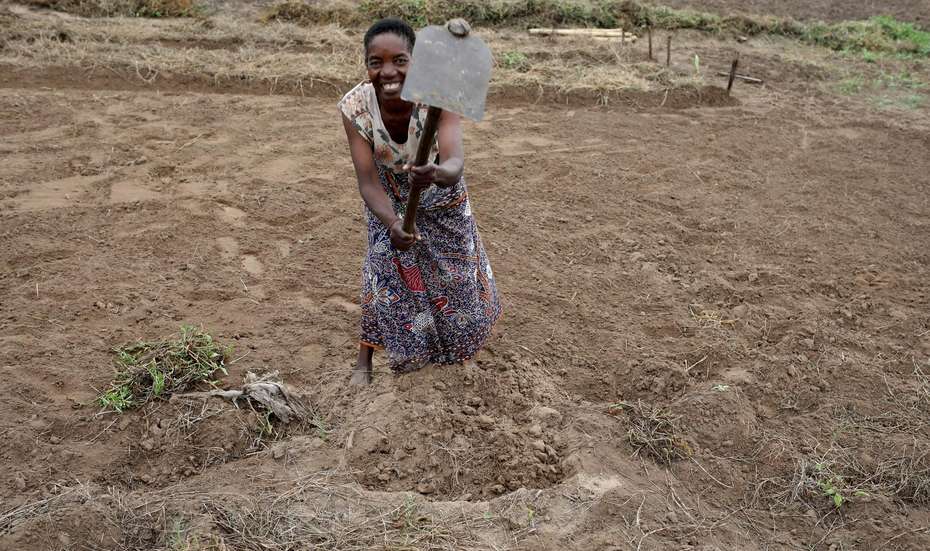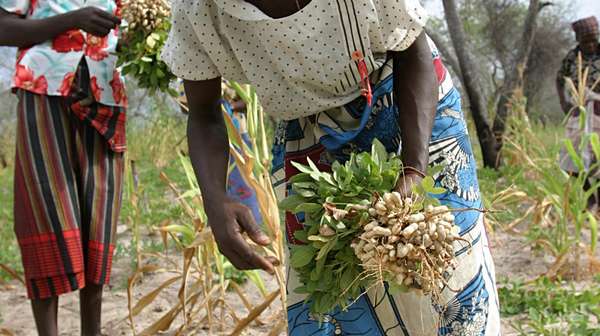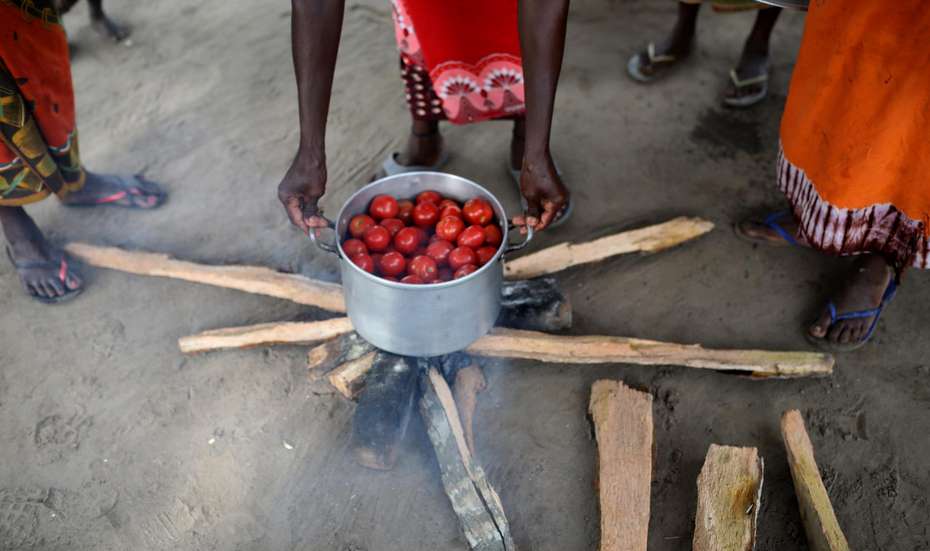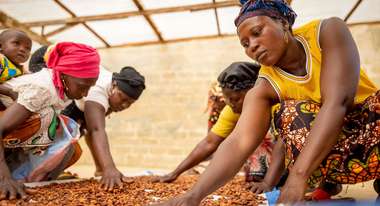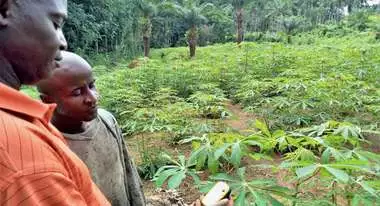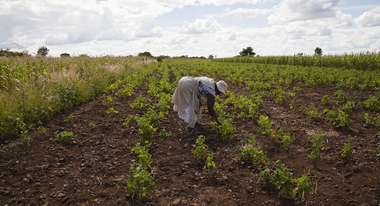Joint learning in Mozambique
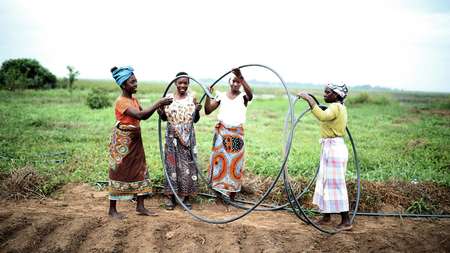
Farming Schools Against Climate Change
Mozambique boasts fertile soil and valuable natural resources but is nonetheless one of the poorest countries in the world. Almost half of all children under five years of age suffer from chronic undernutrition. 70% of the population lives from subsistence agriculture, but their knowledge and technology are extremely outdated. In addition, extreme weather events such as cyclones, floods and droughts regularly destroy their crops.
Modern Cultivation Methods Increase Yields
For years, Maria Anduaze has been in her field, fighting the droughts and floods caused by climate change. “In 2015, my maize crop failed entirely because of the drought,” says the haggard woman. One year earlier, her plants had rotted because the field was flooded. The orphaned grandchildren ate only one meal per day.
In the meantime, both girls have regained enough strength to go to school. Their grandmother is a member of the Nhenhele support group, which translates as “ant.” Here, 22 especially vulnerable people learn how to cultivate their fields more effectively. Most of them are widows and single mothers.
Welthungerhilfe educates the smallholders on sustainable cultivation methods. In the Farmer Field Schools, they grow vegetables under low straw roofs, install simple irrigation systems and apply natural fertilisers. They scatter the weeds that they pull up over the fields in order to keep the moisture in the soil. Tools such as spades, watering cans and simple treadle pumps are funded by the project.
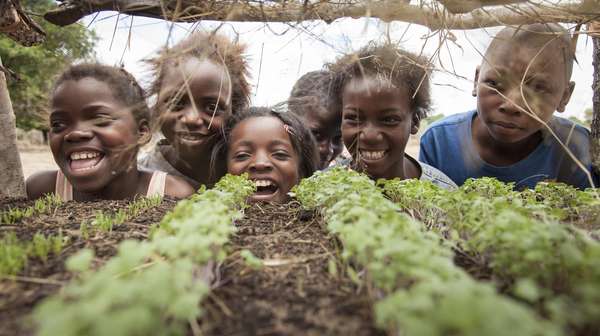
Welthungerhilfe in Mozambique
Drought-Resistant Seeds Improve Nutritional Situation
The central province of Zambezia is one of the country’s forgotten regions. The economic powerhouse of Maputo lies 1,000 kilometres to the south. Revenues from the exploitation of natural resources and from other businesses do not reach the province’s smallholders. Welthungerhilfe is supporting 4,650 families in the farming schools. This improves the food and nutrition security of more than 30,000 people.
How Welthungerhilfe Supports People in Mozambique
- Welthungerhilfe educates the population on sustainable cultivation methods. This includes soil protection measures, vegetable seedling cultivation, simple irrigation systems and natural fertiliser use.
- In the farming schools, smallholders become familiar with drought-resistant and nutritional field crops. They cultivate soy and process it into protein-rich milk for their children. Sweet potatoes offer protection from eye diseases due to their high provitamin A content. Cabbage, tomatoes and other vegetables improve families’ diets.
- People can earn additional income by cultivating and selling sesame.
- In cooking courses, smallholders learn how to organise a healthy meal. They get to know basic hygiene measures and conserve their produce: Tomato purée and sweet potato marmalade keep for up to three months and can be sold.
- In order to improve people’s economic situation, some farmer groups are being given goats to be raised.
Maria Anduaze harvested 250 kilogrammes of maize last year. That is a record for her. She sold part of the crop at the market as maize flour. Using this money, she is now building a sturdy house with a corrugated metal roof and real plaster. She is excited for the off season. Her group has planted tomatoes, onions, sweet potatoes and soy; these nutritious products could soon eliminate malnutrition in the village.





